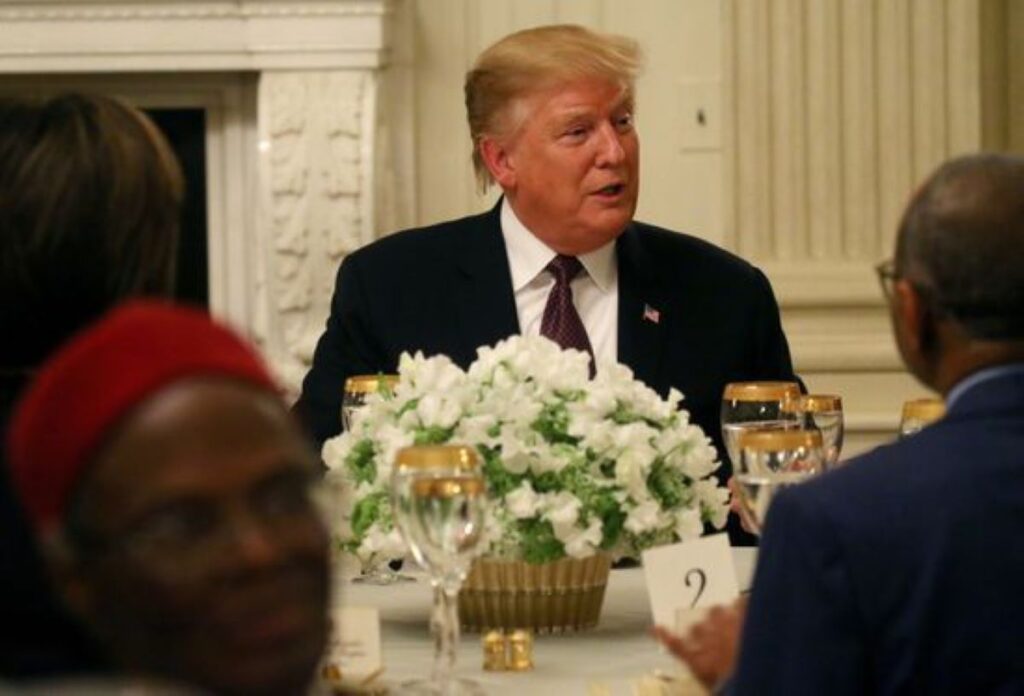
Senior Senate Republicans find themselves in a precarious position as Donald Trump’s opposition threatens to dismantle an emerging bipartisan deal over the southern border. This clash jeopardizes a crucial legislative achievement and offers a glimpse into the dynamics expected to unfold with Trump likely as their presidential nominee.
Recent weeks have witnessed Trump’s relentless lobbying against the delicate border compromise being negotiated in the Senate. GOP sources reveal that Trump’s resistance stems from his desire to leverage the issue for his upcoming November campaign. This motive has driven his private conversations and public statements on social media.
Senate GOP Leader Mitch McConnell’s acknowledgment of Trump’s stance underscores the gravity of the situation. In a private meeting, McConnell conceded that Trump’s hostility towards the impending border deal complicates Republicans’ efforts to address the pressing issue effectively.
Despite Republicans’ prior warnings about Trump’s potential to sabotage the bipartisan proposal, McConnell’s admission underscores the depth of the predicament. On Capitol Hill, Republicans confront the uncomfortable reality that most within the GOP are reluctant to challenge the former president, anticipating his role as the party’s standard-bearer.
ALSO READ: Judge Rejects Prosecutors’ Motion to Compel Trump to Disclose Legal Tactics
GOP Senator Mitt Romney of Utah criticizes Trump’s apparent prioritization of political gains over addressing the border crisis, condemning his reluctance to seek solutions. Romney’s sentiments echo broader concerns among Republicans about Trump’s intervention potentially derailing efforts to resolve critical issues for partisan reasons.
Senator Todd Young of Indiana voices apprehension about the possibility of the border deal being discarded for political expediency. He emphasizes the importance of pursuing bipartisan solutions, prioritizing the nation’s interests over electoral strategies.
POLL — Is Systemic Racism a Significant Problem That Requires Reform in Policing and Other Areas?
The looming specter of Trump’s influence raises questions about the GOP’s ability to navigate policy decisions independently of his sway as members grapple with the repercussions of defying his directives.
For Republicans who served during Trump’s tenure, the current predicament feels eerily familiar. Trump’s ability to disrupt legislative processes with a single tweet underscores the governance challenges under his shadow. As Trump advances toward the presidential nomination, Republicans brace themselves for a return to the tumultuous dynamics of the Trump era.
ALSO READ: Legal Experts Raise Concerns Over Judge’s Handling of Donald Trump’s Document Case
Senator Thom Tillis of North Carolina acknowledges the difficulty in convincing Trump to reconsider his opposition but emphasizes the importance of pressing ahead with bipartisan efforts despite the obstacles. Despite the contentious backdrop, McConnell downplays Trump’s intervention, signaling an ongoing commitment to the negotiations.
In essence, Trump’s border standoff highlights his enduring influence within the GOP and the challenges it poses for legislative initiatives. As Senate Republicans navigate this impasse, their ability to prioritize national interests over partisan considerations will test their resilience in the face of Trump’s formidable presence on the political landscape.
You Might Also Like:
Court Slams Trump With $83 Million Fine in E. Jean Carroll Defamation Suit
Connecticut School Faces Criticism for Scrapping Veterans Day, Columbus Day From Holiday Calendar
Biden Campaign Team Dismisses 3rd-Party Threats Ahead of 2024 Elections
Texas Senator Condemns Plan to Give Poor Residents $500, Says It’s Unconstitutional
